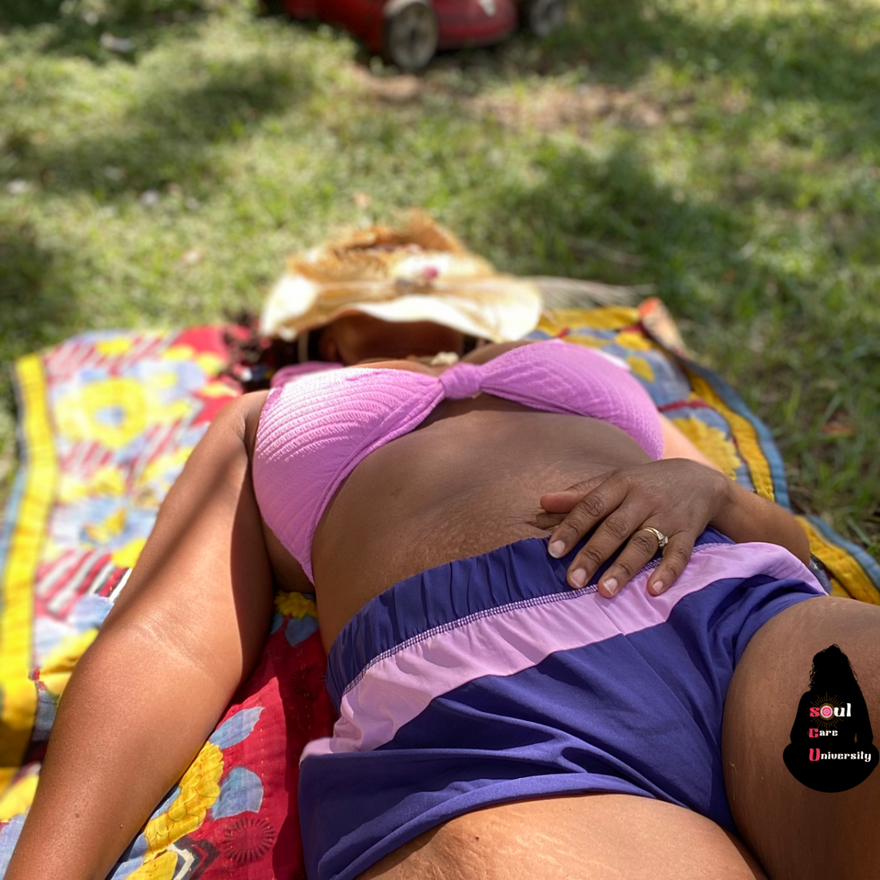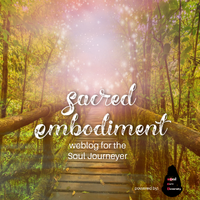
Embracing Recovery As A Way Of Life
Many people don’t truly understand what nourishment is. Nourishment is a feminine principle, deeply rooted in indigenous traditions. One of the core aspects of nourishment is BEing, and another is Recovery.
I’ve been in recovery mode myself—recovering from the growth of 2024, from daily doing, and from crisis experiences.
There’s the daily recovery, which for me happens during sleep, dreaming, and the quiet moments throughout the day. Then, there are the monthly recoveries that occur between the last crescent moon and the new moon. Finally, there’s the yearly recovery that takes place during the winter months.
Recovery is mirrored in nature everywhere, not just in the changing seasons. No flower blooms 100% of the time. No animal is always active, and even our evergreen trees have their dormant season.
Times of inaction and stillness are ever-present in the wild, yet it’s us humans, in our productivity-driven culture, who shy away from recovery.
So, why is recovery so difficult for many? It’s because we’ve been conditioned to believe recovery is unnecessary. One of the first things our colonizers did was dismantle our ancestors' connection to nature. Nature and her laws were demonized and dismissed. A “better,” “smarter,” and more “civilized” way to live was introduced, one rooted in the laws of man.
This wasn’t a gentle conversion—it was a violent one, and for many of us, our DNA has never fully recovered. Are you starting to see why recovery is so crucial?
As time passed and each generation was born, the laws of man became more ingrained. Not only did these laws become increasingly dehumanizing and oppressive, but they also became more sophisticated. Soon, a new culture emerged, focused on productivity, profit, power over others, and countless other distortions of nature.
The people forgot about nourishment and its roots. The ways of their ancient ancestors were branded as barbaric, uncivilized, uneducated, and unworthy of consideration.
Inaction and stillness—also known as recovery and rest—became synonymous with laziness. Cultures that, perhaps unknowingly, still held onto their ancient ancestral traits were also labeled as lazy. And so, the cycle continued.
This brings us back to recovery and the reclamation of nourishment’s roots. To reclaim recovery as a practice requires commitment to learning about a system most of us know little about. However, just because we’ve lost touch with these ancient ways doesn’t mean they’re not available to us.
The wisdom is found in the recovery state. When we rest in and with nature, that remembrance is activated. We begin to reconnect with our original language, technologies, and plug into the true matrix of life.
This process takes time and requires effort. But with consistent practice, embracing recovery as a natural part of our life cycle will help reverse stagnant, itchy, and irritating energy in our cells. We’ll heal our lineage and create a new way to pass on to future generations.
Here are some of my favorite recovery practices:
-
Land reconnective practices: Listening to the breeze, watching clouds, birdwatching, digging in the dirt, picnicking, strolling, sunbathing, walking in the rain.
-
Napping
-
Daydreaming
-
Reading poetry
-
Handwork: Playing with clay, making jewelry, arranging bouquets, planting seeds.
-
Watching the sunset
-
From sunset to bedtime: Engaging in only nourishing practices.
These are just a few practices to start with. You might find that some are easier than others, and over time, your body and soul will guide you to more ways to recover.
One final tip: Take your time. Our culture is obsessed with consumption, but consider what it feels like to savor every precious morsel of your life.

Comments